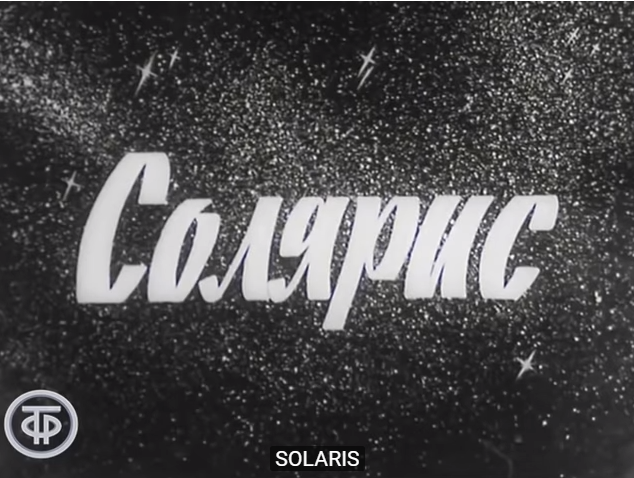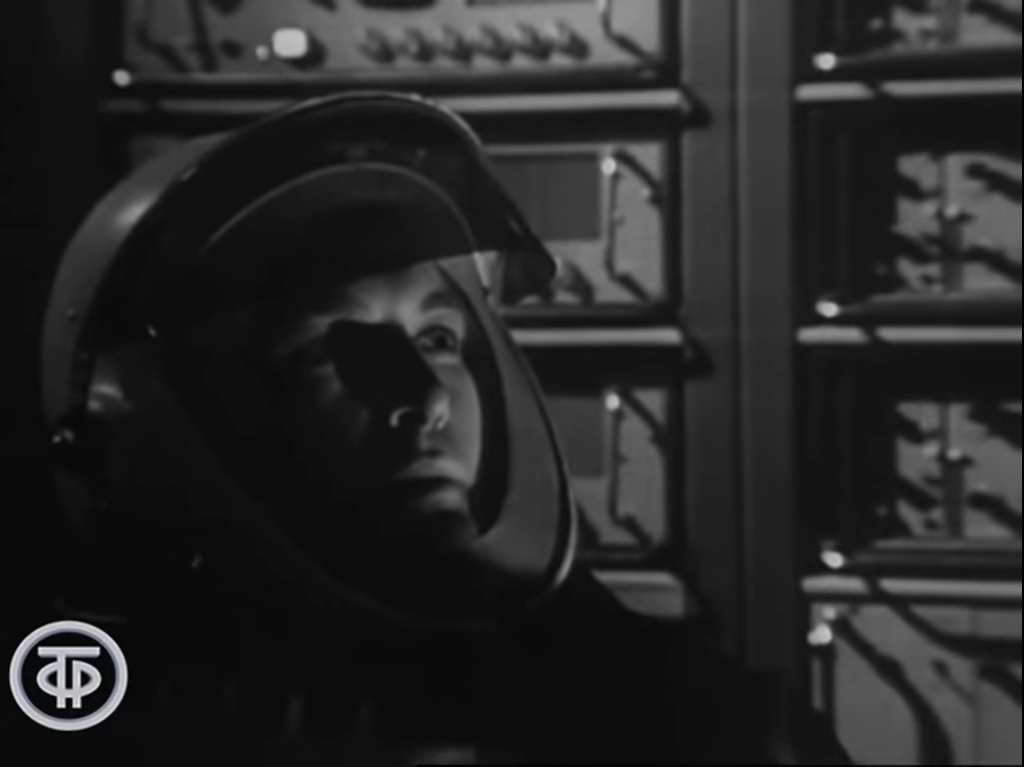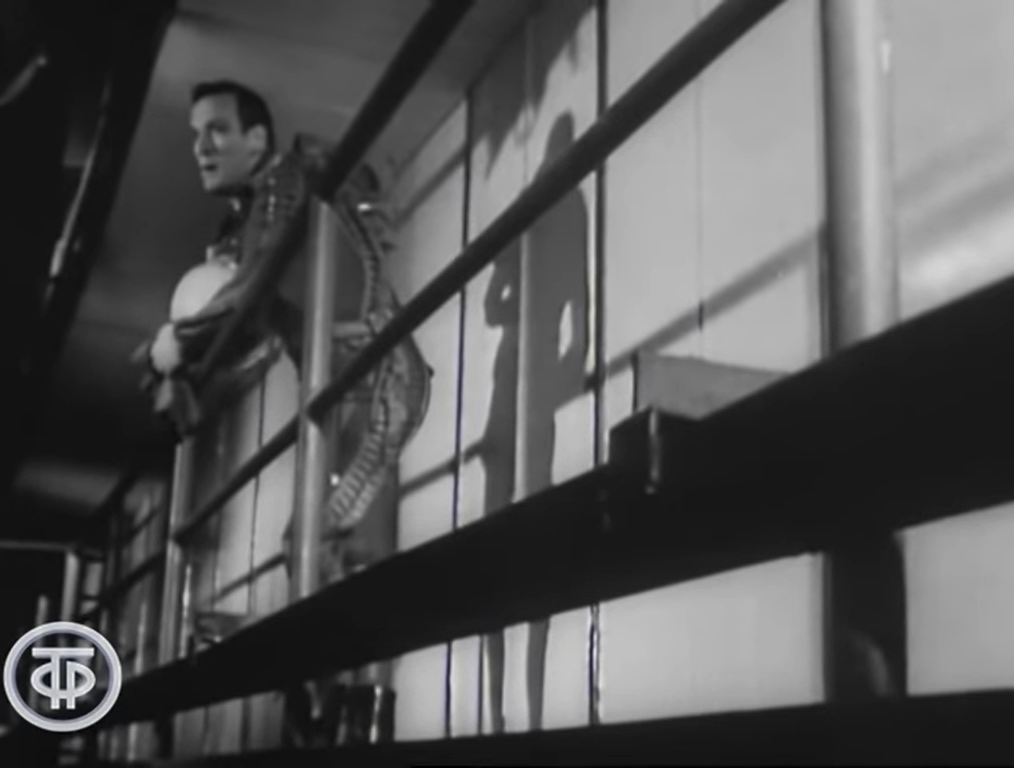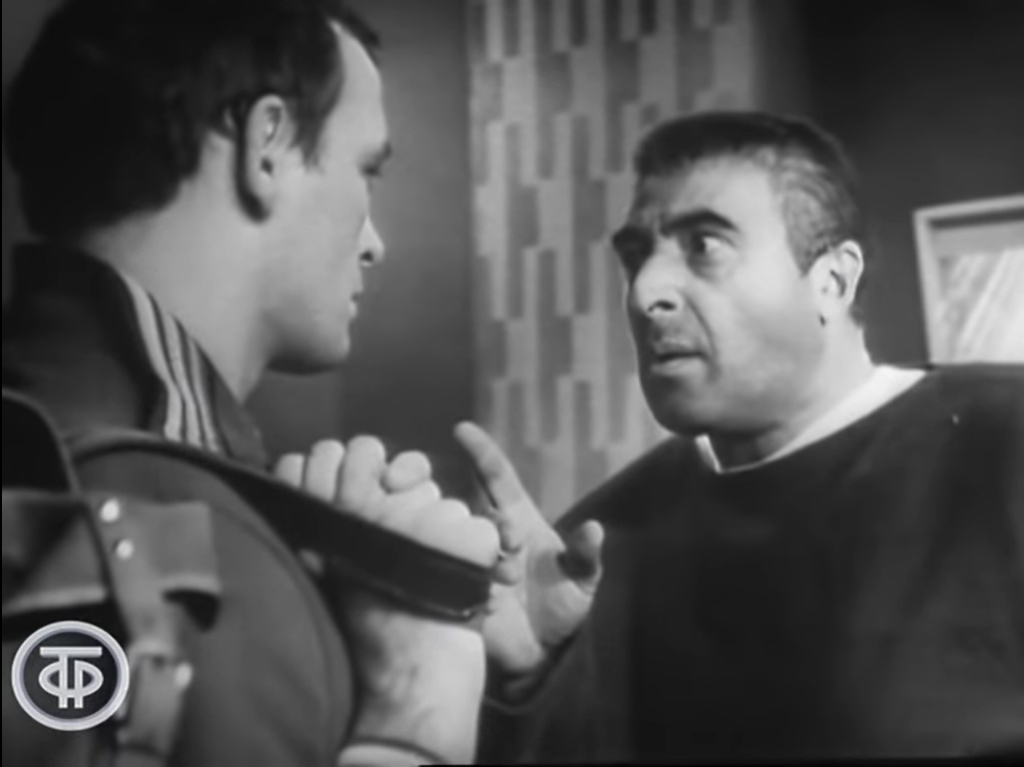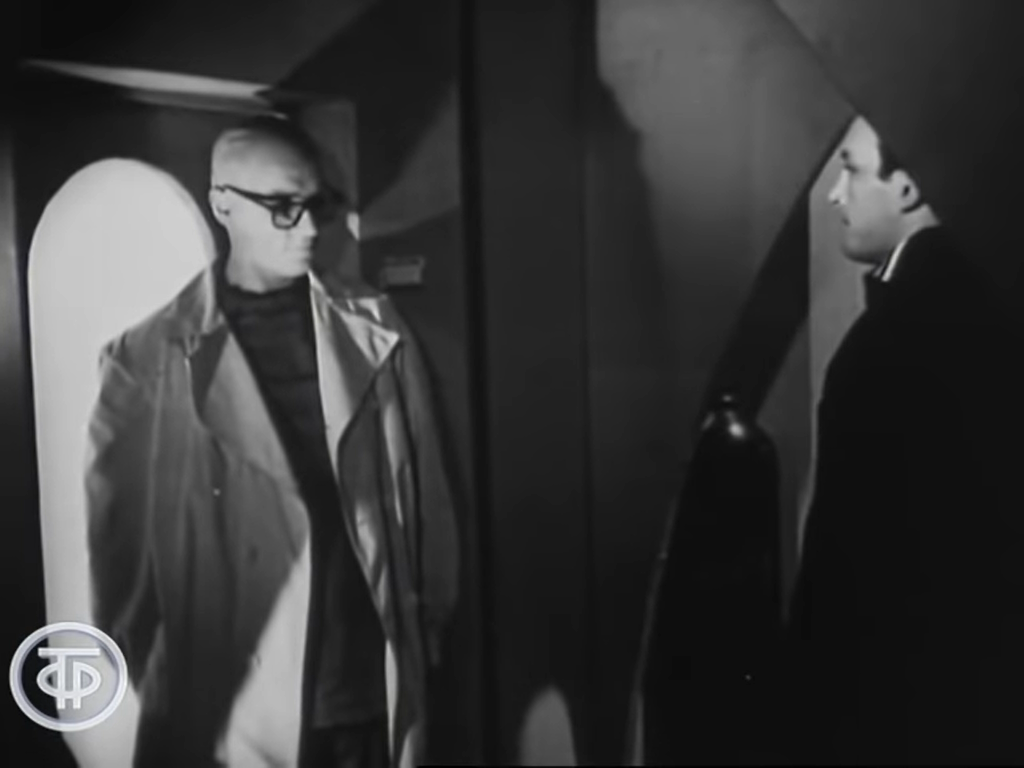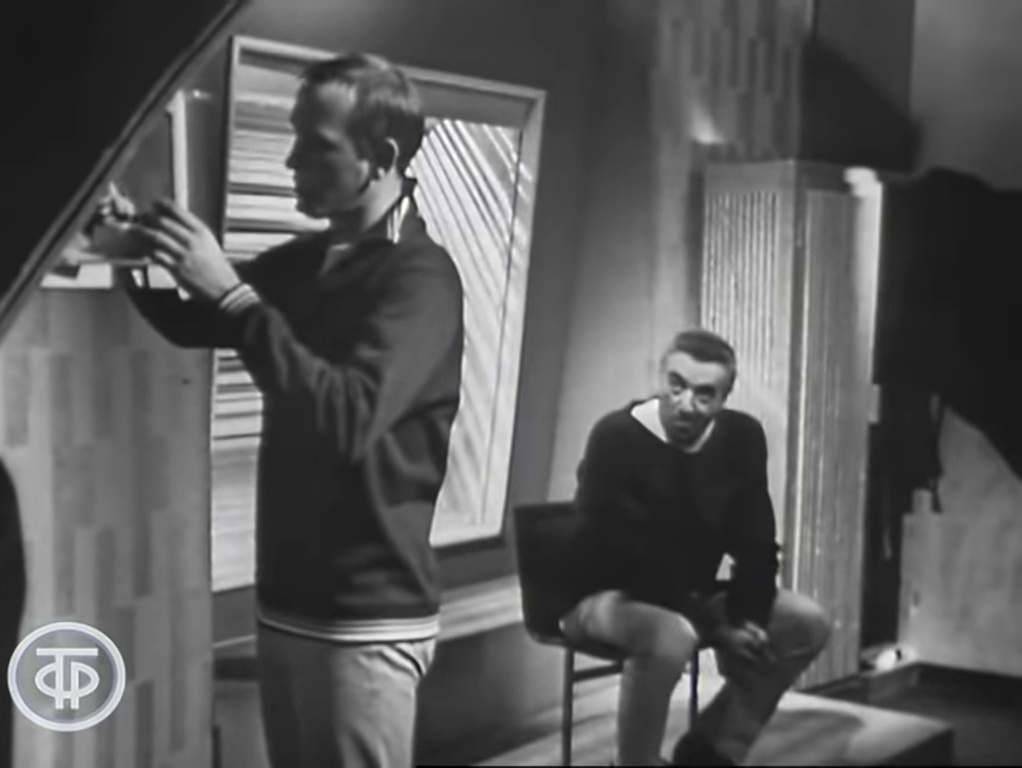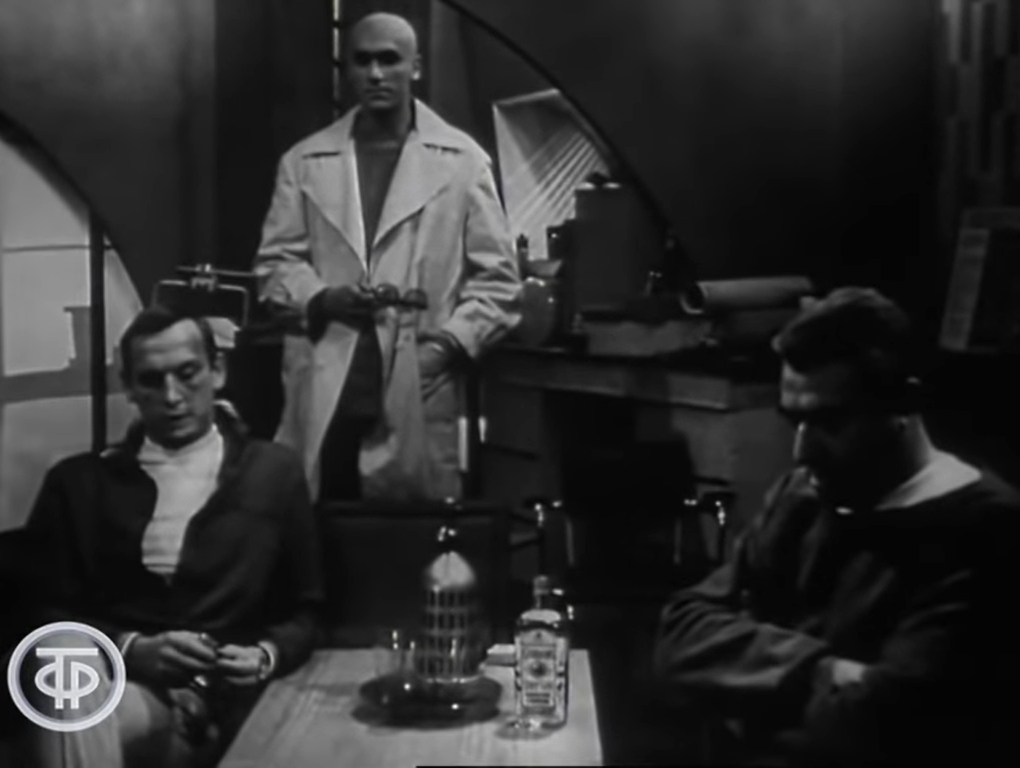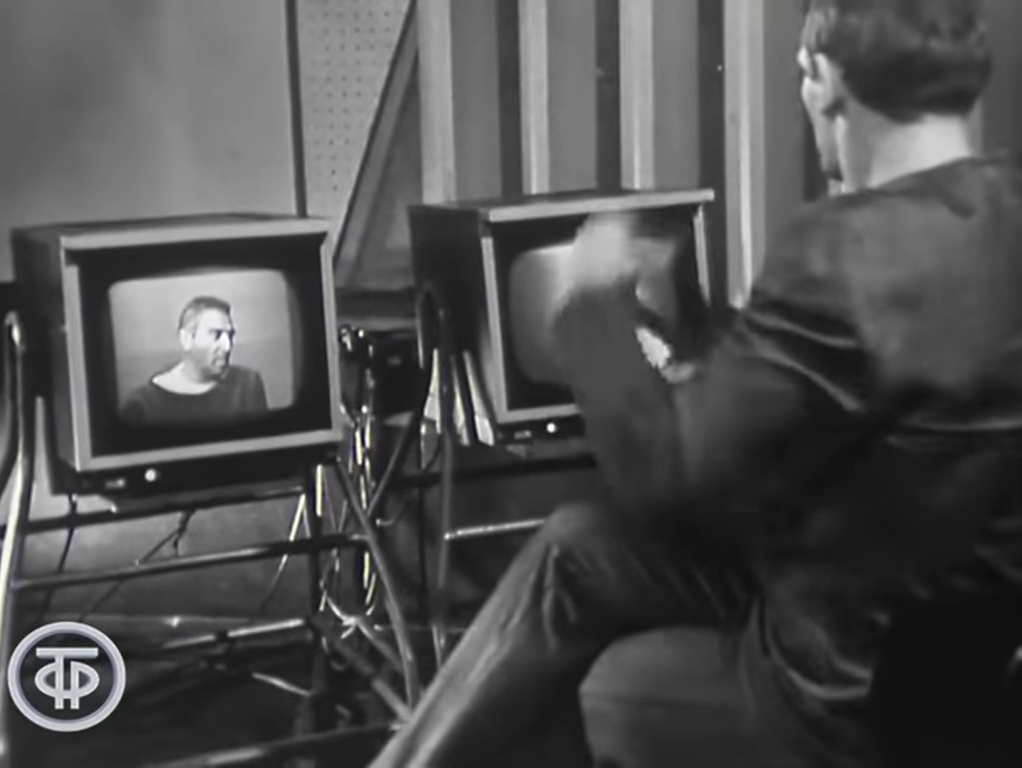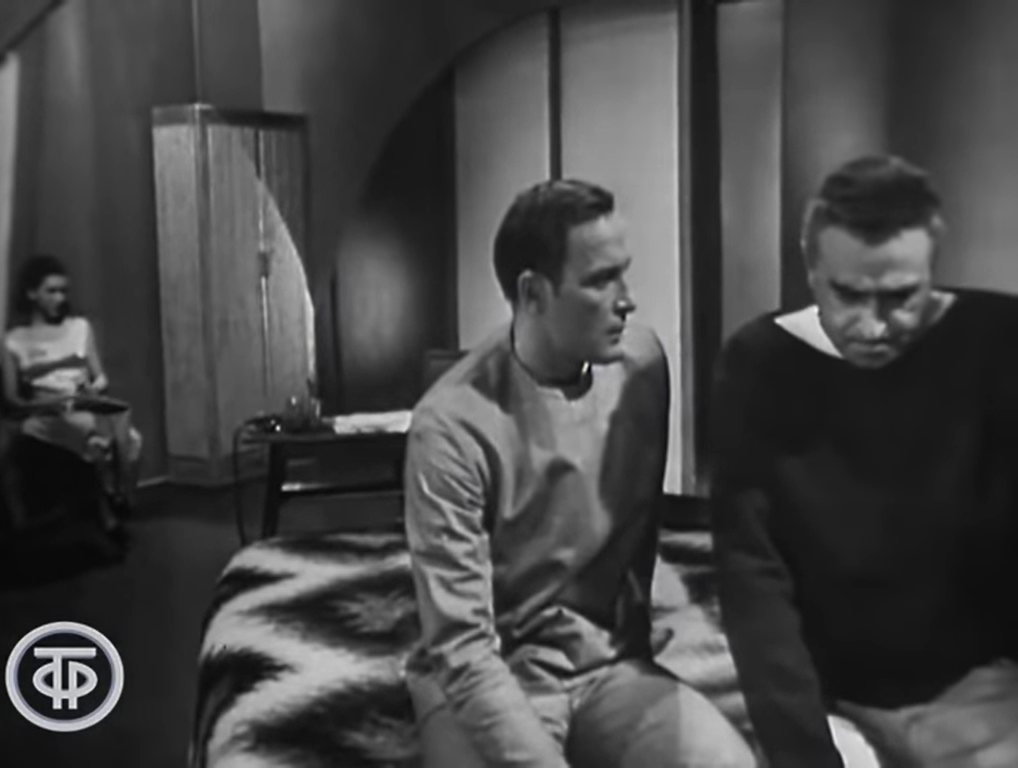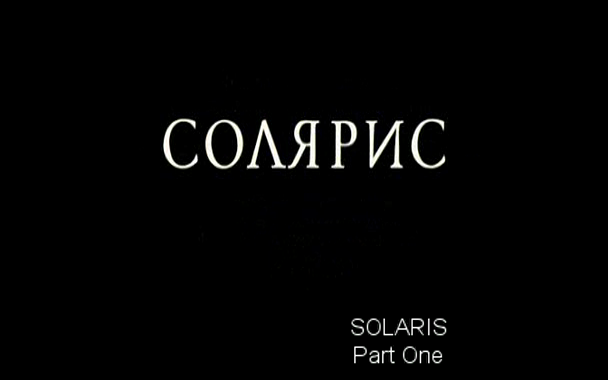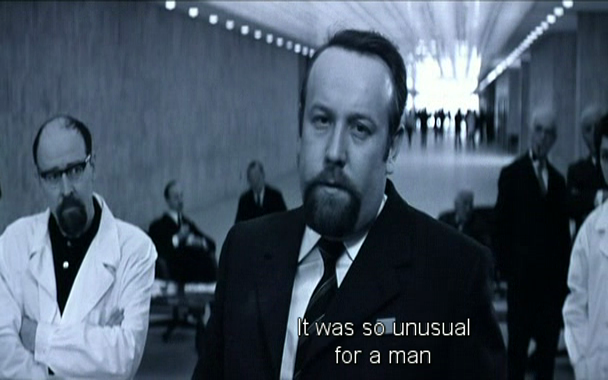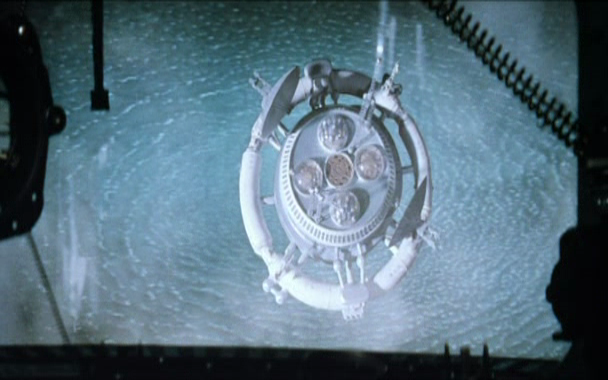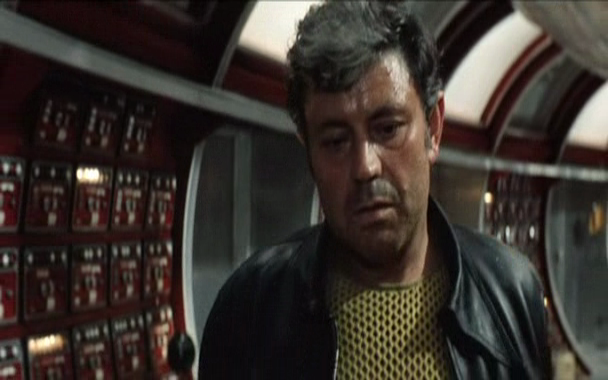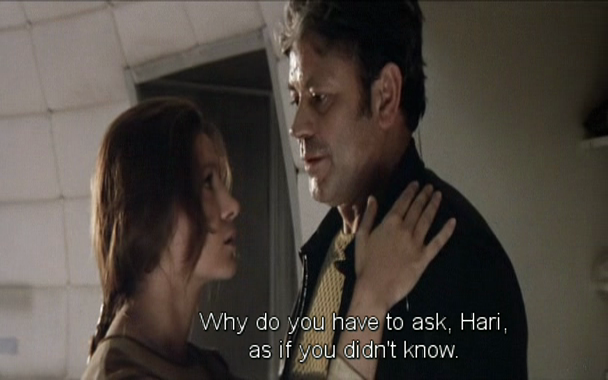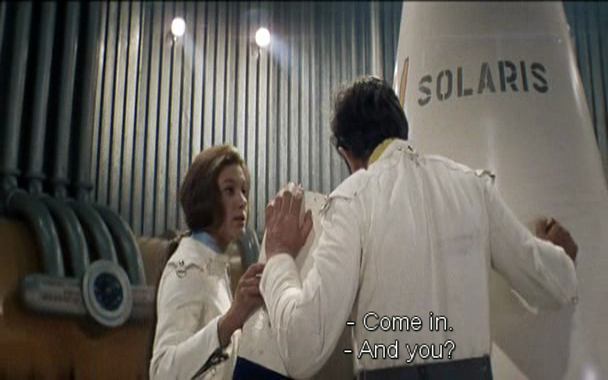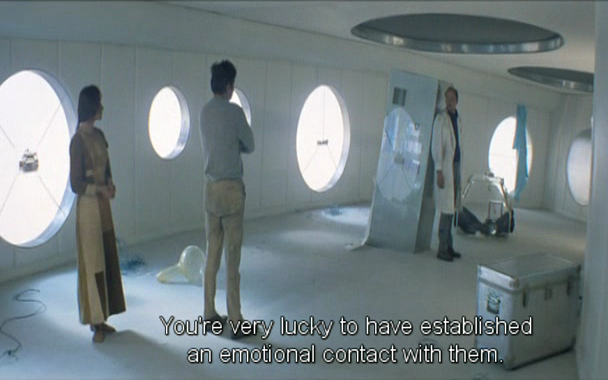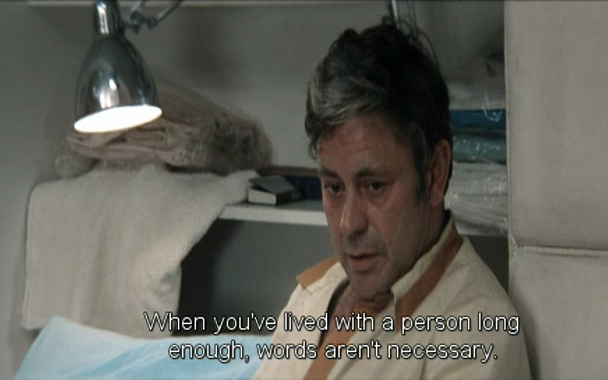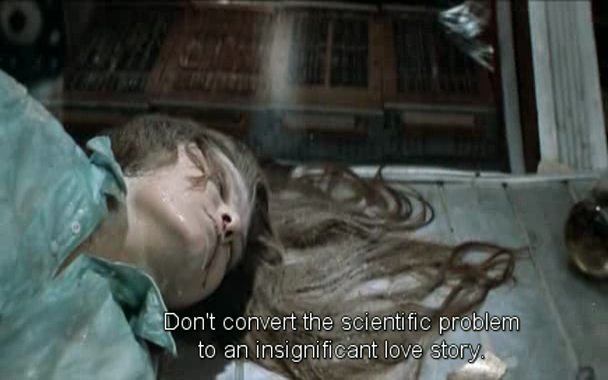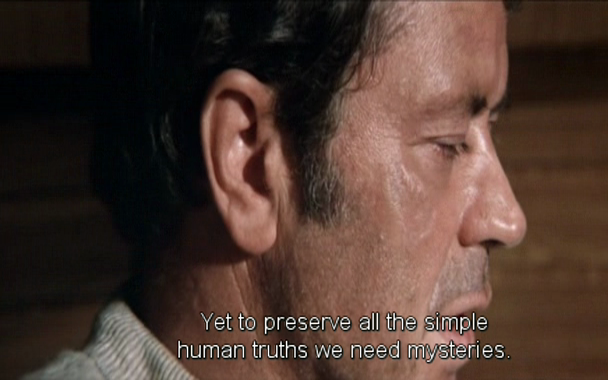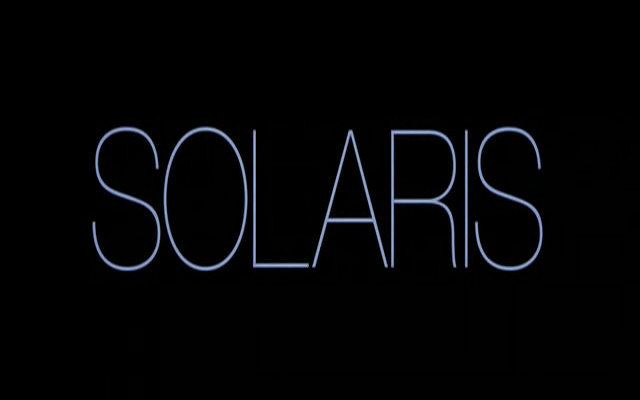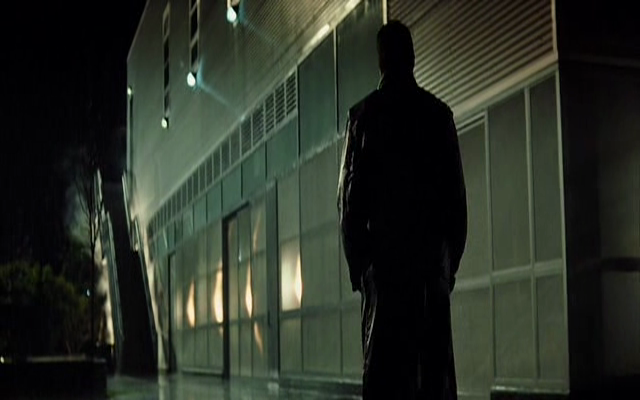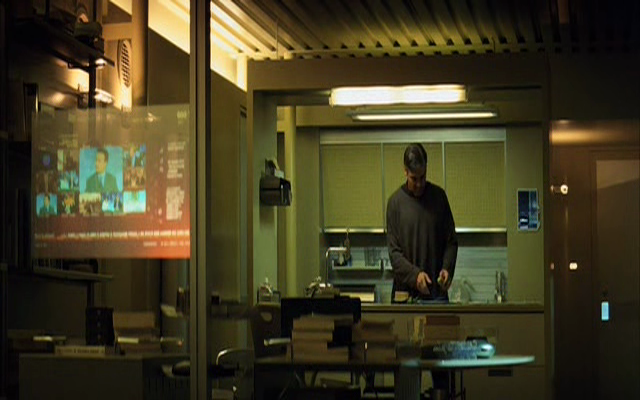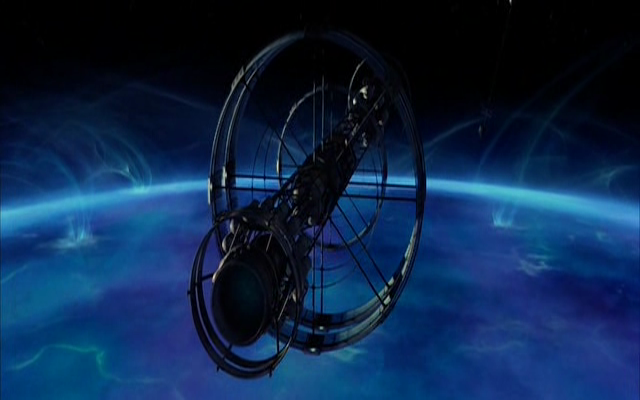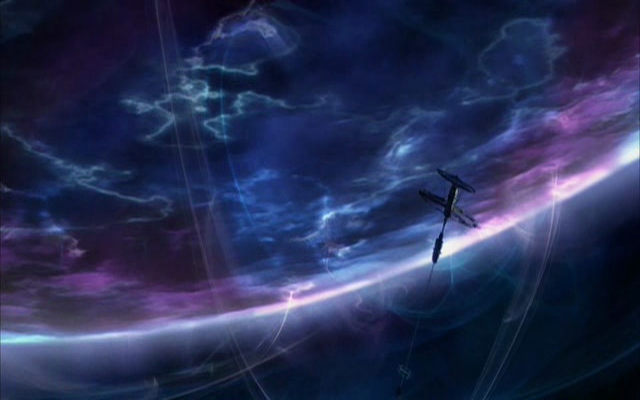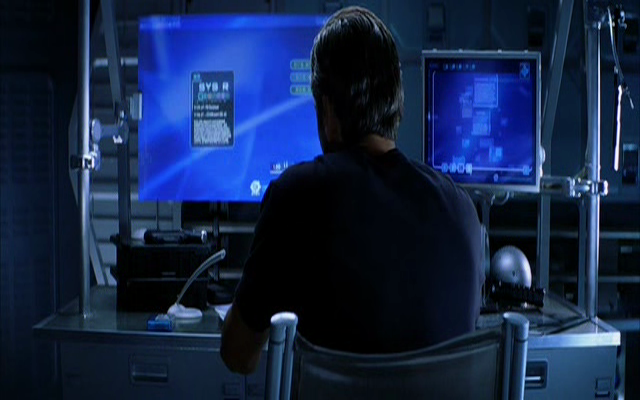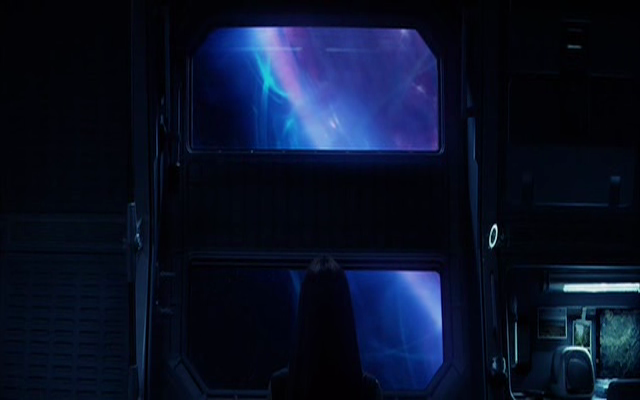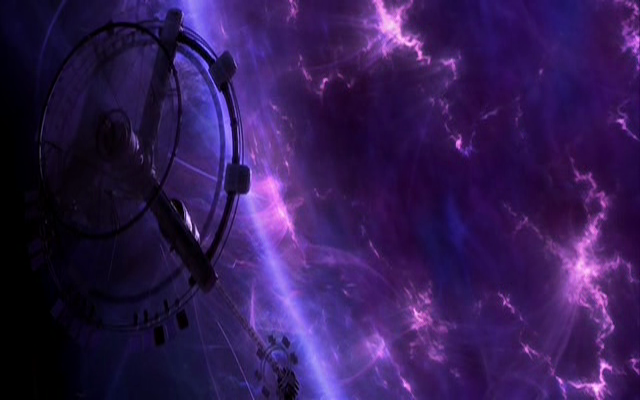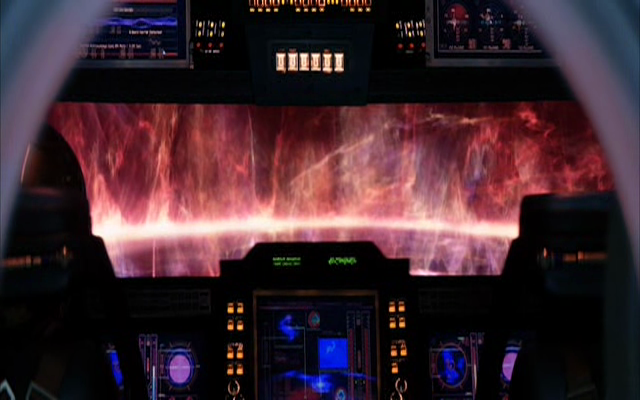-
#363 – Solaris (1968)
Solaris (1968)
Film review #363
Directors: Boris Nirenburg, Lidya Ishimbayeva
SYNOPSIS: Dr. Chris Kelvin has arrived on a space station orbiting the planet Solaris. When he arrives, he finds that his colleague is dead, and the two remaining crew are acting strange. Things get even stranger when his wife, who died ten years ago, seemingly appears on the station with no memory of what happened to her. He learns that people important to each of the crew appear to them, and this is somehow connected to the planet Solaris below them. Chris and the other crew must try to determine how these people have come to be on the station, and indeed if they are real…
THOUGHTS/ANALYSIS: Solaris is a 1968 TV film based on the novel of the same name. It is the first adaptation of the book, but the least well known, having been overshadowed by the 1972 Tarkovsky version, generally considered to be a masterpiece of cinema, and to a lesser extent the 2002 version, which saw widespread release. The film opens up with Chris Kelvin, an astronaut and scientist, docking his shuttle with the space station orbiting the planet Solaris. When he arrives, he finds a peculiar set of circumstances, with his old friend and colleague dead having apparently committed suicide, and the two remaining crewmembers being extremely vague as to what is happening on the station. The film’s plot unfolds slowly, with the mystery being slowly unravelled while new complications are constantly added. It is rather similar to the other two films versions, so I will assume it follows the plot of the novel with some accuracy. It’s slow-paced, but it fits the story well, since it gives the viewer space to reflect on the themes that the film is exploring.
Upon finding his wife, who died ten years ago, seemingly alive and well on the station, he realises that each crewmember has had someone personal appear to them. They suspect it has something to do with Solaris attempting to communicate with them, and somehow reaching into each of their subconscious’ and materialising a person within. This is one of the primary themes of the film, and the means of communicating with an entity or being that is completely unlike anything that could be encountered on Earth. It is explained decently, and explored primarily through Chris’ relationship with Harrie, or the facsimile that has been created, which leads to the distinction between the real and fake being increasingly blurred. It doesn’t have the style and depth of the Tarkovsky version, but this no-frills version still gets its message across. A lot of the film does focus on Chris and Harrie, and it seems like a lot of the science-fiction emphasis is sidelined in favour of the film being more of a drama. We never get to see the people ‘created’ for the other crewmembers or get any clue to who they are, so that leaves an odd mystery that will never be solved (in this version anyway). This further reinforces the main relationship between Chris and Harrie, again emphasising their drama more than the larger concepts of the film.
Even though this version doesn’t have the budget or vision of the Tarkovsky version, it still gets the story across well. Instead of elaborate sets and design, we see a rather sparse looking space station which instead emphasises a feeling of isolation, and gives the film a more horror-vibe at times. This is not a bad adaptation by any means: it delivers the story well, explains what’s going on clearly most of the time (there are some points, particularly near the end, that it gets a bit confusing), and explores its themes with a decent depth. However, given the 1972 Tarkovsky version is such a stellar adaptation and work of cinema, there is really not much value in watching this version, as everything in it is done so much better there. Overall, a decent adaptation, but completely eclipsed by its successor.
-
#23 – Solaris (1972)
Solaris (1972)
Film review #23
Director: Andrei Tarkovsky
A sci-fi epic delving into the depths of an ocean planet and the human mind…Was this the Soviet Union’s 2001: A Space Odyssey?
Chris Kelvin, a psychologist is spending sometime with his parents at their home. He is reflecting on his life down by the lakeside before he is sent to a space station orbiting the oceanic planet Solaris the very next day. Before leaving, he destroys most of his possessions in a bonfire, and says goodbye to his Father, who he does not expect to see again.
Upon arriving at the space station, Kelvin learns that one his old friends, Dr. Gibarian is dead (having committed suicide), and the only two surviving crewmembers, Dr. Snaut and Dr. Sartorius are not forthcoming with information about what has happened, and act strange when Kelvin pushes them for answers. Snaut advises him to rest in the quarters, and everything will become clear…
Upon waking up from his sleep, a woman has appeared in his quarters, despite him blocking the doorway. It turns out it is Hari, his deceased wife. Not wanting to be taken in by this obvious trick, he tricks her into getting into an escape rocket and jettisons her into space, but burns himself on the exhaust rockets. While Dr. Snaut tends to his wounds, he explains that these “visitors” have appeared to everyone aboard, and are an incarnation of people they know, being generated by Solaris in some way.
Later, Hari appears before Kelvin again. When he leaves the room, she tears through a door after him. He watches her regenerate her injuries right before his eyes. When Dr. Sartorius calls a meeting with everyone, Kelvin introduces Hari as his wife and insists they treat her with respect. Sartorius reveals his latest discovery, that the “visitors” could be attacked with a radiation blast of x-rays. Hari realises she is not human, and composed of the memories of Kelvin’s dead wife. Eventually, Kelvin tells Hari how his real wife committed suicide ten years ago. Becoming increasingly unable to cope, Hari kills herself again by ingesting liquid oxygen. However, she soon recovers.
While he is sleeping, Kelvin dreams about his Mother. and multiple images of Hari. When he wakes up, Hari is not there. Snaut gives him a goodbye note from her, as she has gone to Sartorius and got him to destroy her. After broadcasting Kelvin’s brainwaves over Solaris, small islands have appeared all over Solaris. Now Kelvin has to make the choice of returning to Earth, or to live on Solaris where everyone he has known and loved has been reborn. In the end, we see Kelvin in front of his parent’s house, as the camera zooms up to reveal an island on Solaris…
I have previously watched the 2002 “re-make” of Solaris, but I was pleasently surprised to find they are two completely different movies, and the plot deviates at a number of points. This version is very much akin to Kubrick’s 2001: A SpaceOdyssey, which was released in the west about three years prior to Solaris. The movie is entirely Russian, which draws up interesting more interesting comparisons between eastern and western science-fiction. Running in at over two and a half hours, this is very much an epic story that focuses on a slowly revealed narrative and development. 2001 and Solaris have the theme of communication between alien species as a central theme. In 2001 this includes the relationship between man and machine too, and any extraterrestrial species is never revealed or explained. In Solaris, we are confronted with an alien form of consciousness that can penetrate into the mind and memories of humans, and the question of this being hostile communication or not plays an important part in the storyline. The music too is sparse and far between, the only reccuring music being Ich ruf’ zu dir, Herr Jesu Christ by Bach. The biggest contrast between the two is that while 2001has an exceptionally high budget and finely crafted sets, Solaris has a more sparse and limited design. Apparently the director wanted to heighten the focus on the characters rather than building an imaginary and complex future which other science-fiction does.
Perhaps it is unfair to compare the two movies so closely. Solaris is an epic tale in it’s own right and deserves to be looked at as an individual entity. The original novel, written by Polish writer Stanisław Lem was published in 1961. This adaption focuses on the human psychology of extraterrestrial contact and the impact it has on the central characters, while the original novel had more of a focus on the “futility of extraterrestrial contact”. The characters themselves are constantly put at odds with each other with their views as to what to do with Solaris, and whether it should be abandoned or understood. The compex relations between themselves and Solaris evokes all kinds of philosophical rationales to a viewer, never giving the answer, just merely asking the questions. Whereas science-fiction very much traditionally works around the premise of an imagined future, that aspect of science-fiction is very much disregarded in Solaris, giving no real indication of time and place, and focusing entirely on this complex relationship between unknown life.
Solaris was only released in five Russian cinemas originally, but it remained a staple of the cinemas for years, and earned it a cult status. It is a film that is still widely regarded as one of the most important in science-fiction, and while definitely not a casual, easy to watch film like the 2002 version, in my opinion it is worth finding the time to sit down and absorb its message.
-
#19 – Solaris (2002)
Solaris (2002)
Film review #19
Director: Steven Soderbergh
A psychological sci-fi movie delving into the human mind…
Chris Kelvin is a psychologist on Earth in an unspecified time in the future. One day he receives a visit from emissaries from the DBA, who give him a message from an old friend, Dr Gibarian, who wants him to come aboard the space station orbiting the planet Solaris to help them with the strange phenomena that is happening there, which is making the team not want to leave. The security team that went there did not report back, and Chris is to be sent as a last resort to rescue the team.
When Chris arrives at the station, he finds Gibarian has committed suicide, and most of the team have disappeared. The only surviving members are Snow, and Dr. Gordon. The survivors are reluctant to explain what is going on, and Snow suggests to “sleep with the door locked”. While sleeping, Chris dreams about his deceased wife Rheya, and how they met. When he wakes up, he finds her there: Seemingly real. He is reluctant to accept this, and tricks her into an escape pod and jettisons it into the planet.
When Chris falls asleep again, Rheya reappears, and this time Chris is more convinced and lets her stay. This creates a tension between him and Dr. Gordon, who believes these creations to be a threat to the human race, and why she does not want to return to Earth with one of them on board. Eventually, after learning of what Chris did to her the first time she appeared, she commits suicide. This is partly because she is made from Chris’s memories, and he remembers her as she was when he found her dead by killing herself. However, she begins to regenerate and heal herself. She has no more reason to live, and wants Dr. Gordon to kill her using a special device. Chris won’t allow it, but when he falls asleep, she goes the doctor and is destroyed.
After this, Chris and Dr. Gordon find the body of Snow, and they realise the one they have been talking to is an imposter, who killed the original Snow in self-defence when he first appeared. The use of the special device Gordon used to kill Rheya is causing the station to collapse into the planet, and the fake Snow they escape. On the way to the escape pod, Chris makes a decision to stay onboard, deciding he would rather stay with the memories of his wife. The film ends ambiguously, with the two reunited in a place where “Nothing that happened matters anymore”…
Solaris is an adaption of a Polish novel by Stanisław Lem, which was previously made into a film in 1972, to much critical acclaim. This adaption takes a different approach to the story, focusing more on the human interactions, rather than the original concept of the inadequacy of trying to communicate with an alien species. Because of this, the science-fiction aspects are very much toned down in favour of giving the movie a more “Hollywood-esque” appeal. Having an established actor such as George Clooney heading the cast is something one does not see in science-fiction films very often.
The film has a hint of 2001: A space Odyssey in its plot and set design. There is some ambiguity with regards to the reality of certain sequences, with dreams and flashbacks being neatly interwoven throughout the film (Which I have see before in films such as Brazil, Eight and a Half, and Nineteen-Eighty-Four). It is a very easygoing and light film: There are no intense action sequences or the like, but a bit of thinking and deduction are required on part of the viewer in order to work out everything that happens in the film.
The film is considered a decent one, even though it lost money at the box office (About ten million dollars approximately). It has appeared on lists of best remakes, and was generally well received. One person that did not approve of the film was the author of the original novel, who stated:
As Solaris‘ author I shall allow myself to repeat that I only wanted to create a vision of a human encounter with something that certainly exists, in a mighty manner perhaps, but cannot be reduced to human concepts, ideas or images. This is why the book was entitled Solaris and not Love in Outer Space.
The sacrifice of the scientific and philosophical elements of the original novel were perhaps necessary to getting the movie produced, and getting an “A-list” actor such as Clooney on board. While some of those elements still remain, it has been heavily diluted, and focus shifted onto a much more human-centric plot, which one reviewer described as giving the audience something science-fiction films don’t normally give: Emotion. So in conclusion, Solaris makes an attempt to create an emotional science-fiction and many believe it generally succeeds, though perhaps at the cost of being defined as science-fiction? That is up for debate…
